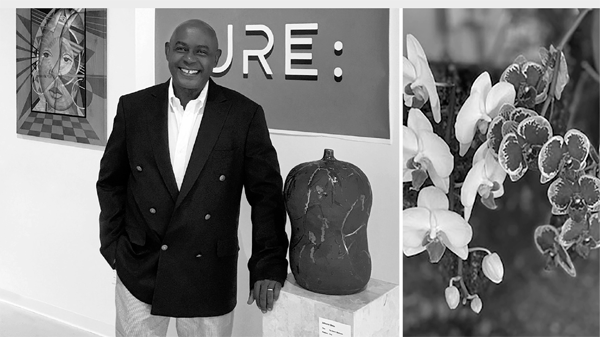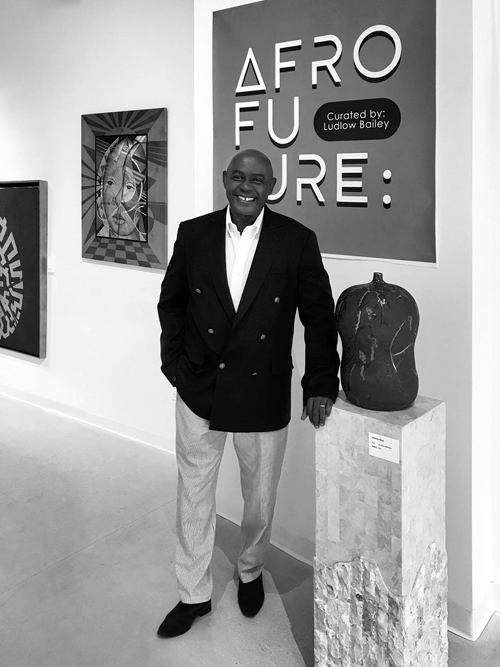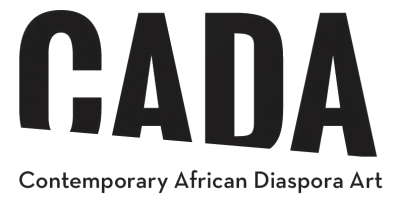
THIS WEEK IN OUR MOSAIC SERIES, INDULGE EDITOR-IN-CHIEF JENNY STARR PEREZ CHATS WITH LUDLOW BAILEY OF CONTEMPORARY AFRICAN DIASPORA ART, ALEXANDRA VILLOCH OF BAPTIST HEALTH FOUNDATION AND JUAN CARLOS LISCANO OF AMERICAN AIRLINES.
By JENNY STARR PEREZ
At INDULGE, we like to think outside the box. For our team, it’s all about the stories behind the people belonging to our diverse community that we feature in every issue and now as part of our limited editorial series MOSAIC. In the past four weeks, we have brought you personal stories of resiliency, hope and strength from Miami’s community leaders — each walking us through their experience during the COVID-19 pandemic outbreak. Today, we continue in our mission to present our readers with relatable and oftentimes moving examples of inspiration in a challenging time. Our commitment as a top regional publication is to further examine how our melting pot of cultures and personalities is the very reason that South Florida has become a mosaic to be inspired by.
Because we represent Miami’s diverse community.
Because we care.
Because every person has a story to tell.
Featured this week is Ludlow Bailey, cultural curator, art advisor and founder of Contemporary African Diaspora Art (CADA); and Alexandra Villoch, chief executive officer of Baptist Health Foundation ; and Juan Carlos Liscano, Vice President Miami Hub Operations of American Airlines
LUDLOW BAILEY, CULTURAL CURATOR, ART ADVISOR AND FOUNDER OF CONTEMPORARY AFRICAN DIASPORA ART (CADA).

“ART AND CULTURE WILL PLAY AN IMPORTANT ROLE IN THE HEALING AND REVITALIZATION GLOBALLY AND IN OUR ENTIRE SOUTH FLORIDA COMMUNITY.”
You describe yourself as a cultural curator, art advisor, writer, art broker and film producer. How do all of the professional hats you wear influence your life?
Through everything I do, I am committed to using art and culture to make a significant impact on the quality of life for all of our community. My company’s name is CADA (Contemporary African Diaspora Art) and we are dedicated to giving Contemporary African Art and artists a platform of exposure to reach and teach new audiences. We produce multi-disciplinary art exhibitions, panel discussions, art talk theater, seminars, curriculum, video and film.
How did you cope with the stay-at-home measures during the COVID-19 pandemic?
The art exhibition landscape changed during this period. I have been working mostly on CADA conversations online, zoom town hall sessions about the impact of COVID-19 on the black male, our community, and recently some discussions about the death of George Floyd.
I have also been sharing more information (videos and visual images) of my last recent show, Roots of the Spirit, which was staged at the ArtServe in Ft. Lauderdale. It was the largest black art show produced in South Florida and was designed to unpack the spiritual and metaphysical infrastructure of global contemporary black culture.
Have you taken any time for self-reflection?
I have had a lot of opportunity to do some writing about spirituality and abundance. I am writing mostly about potential spiritual solutions for black dysfunction in the United States and in the diaspora. I also recently participated in a 21-day abundance challenge online event coordinated by Deepak Chopra.
Describe how your industry can influence the community now, at such an important moment in our history?
I believe the creation and production of culture is a vital activity in the development and growth of balanced, economically viable, healthy, and thriving communities. Art and culture provide significant spiritual and empowering resources and opportunity for human growth and wellbeing. The COVID-19 pandemic coupled with the death of George Floyd and many other men of color has created a socio-economic and political shift in the United States.
Concurrently, the post-pandemic fallout is likely to create an even greater increase in poverty, social unrest and a level of unprecedented chaos and stress in the United States and in our community. Art and culture will play an important role in the healing and revitalization globally and in our entire South Florida community.
What would you say makes art such an important part of both the local and global healing process you mention above?
With so many stereotypes that we need to address, I think that the art platform provides a safe place for our community to have meaningful and important discussions about race issues and the history of black people globally.
What is a lesson you have learned or realization that you have made during this time?
Parenting is my most important life responsibility. I have spent a lot of time talking to my children. My oldest girl is 28 years old. My second girl is 22 years old and my young son is 20 years. Taking care of my health has become a major priority. I am working intentionally on becoming my highest self. I am paying more attention to my spiritual practice and I am being mindful of living life in the present.
What would you like to see happen in the near future, in terms of our culture and how we relate to people?
I see the need for the county to support more cultural programming and the development of sustainable cultural institutions in the black community.
What is something you tell yourself and others in the hopes of inspiring or simply adding some joy to the day?
The best is yet to come. Black excellence rocks.

Leave A Comment